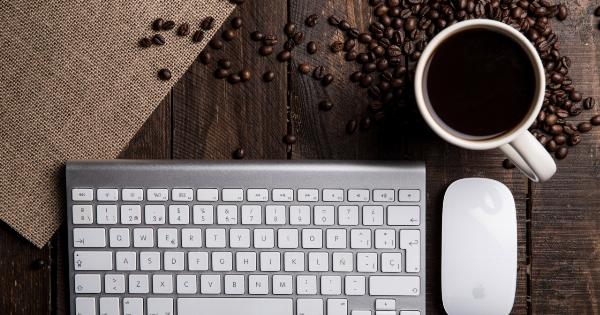Carbohydrates are essential components of our diet, serving as the primary source of energy for our bodies. They provide glucose, which is easily metabolized by the body to produce energy.
However, consuming too many carbs at once can lead to bloating and discomfort, particularly in people with sensitive digestion. So, what is the ideal time to consume carbohydrates to avoid bloating? Here is everything you need to know.
Understanding Carbohydrate Digestion
Carbohydrates are broken down into glucose in the digestive tract, which is then absorbed into the bloodstream and transported to the cells that need energy. Insulin, a hormone produced by the pancreas, regulates the uptake of glucose by the cells.
If glucose is not taken up by the cells, it is stored in the liver and muscle tissue as glycogen.
However, the body can only store a limited amount of glycogen, and any excess glucose is converted into fat and stored in adipose tissue. When the body needs energy, it breaks down glycogen into glucose.
However, if there is insufficient glycogen, the body turns to fat as a source of energy. This explains why low-carb diets are effective for weight loss, as they force the body to burn fat for energy.
The Role of Insulin in Carbohydrate Digestion
Insulin is a hormone that is released in response to glucose in the bloodstream. Its primary function is to facilitate the uptake of glucose by the cells, thereby reducing the concentration of glucose in the bloodstream.
However, insulin also promotes the storage of glucose as glycogen in the liver and muscle tissue, and as fat in adipose tissue.
When you consume carbohydrates, the body releases insulin to control the rise in blood glucose levels. The timing of insulin release is critical, as too much or too little insulin can lead to bloating and discomfort.
If you consume a large amount of carbohydrates at once, the body may release too much insulin, causing a rapid drop in blood glucose levels. This can lead to hypoglycemia, which is characterized by symptoms such as fatigue, dizziness, and nausea. On the other hand, if you consume carbohydrates too slowly, the body may release too little insulin, causing blood glucose levels to rise too high.
This can lead to hyperglycemia, which is characterized by symptoms such as thirst, frequent urination, and blurry vision.
The Best Time to Consume Carbohydrates
So, when is the best time to consume carbohydrates to avoid bloating and discomfort? The answer is that it depends on your individual body and lifestyle. However, here are some general guidelines:.
Pre-Workout
Consuming carbohydrates before a workout provides your body with the energy it needs to perform at its best. However, it is essential to choose the right type of carbohydrate and to consume it in the right amount.
Complex carbohydrates such as sweet potatoes, brown rice, and quinoa are better options than simple carbohydrates such as white bread and sugar. They are slower to digest and absorb, providing a sustained release of energy. Consuming carbohydrates 30 minutes to an hour before a workout can also help prevent bloating and digestive discomfort.
Post-Workout
Consuming carbohydrates after a workout is essential to replenish glycogen stores and promote muscle recovery. However, it is also essential to consume protein, which helps repair and rebuild muscle tissue.
A good post-workout meal should contain a ratio of 3:1 or 4:1 carbohydrates to protein. Examples include a banana and peanut butter, a turkey and avocado sandwich, or a chocolate milkshake.
Morning
Consuming carbohydrates in the morning can provide your body with the energy it needs to start the day. However, it is essential to choose the right type of carbohydrate and to consume it in the right amount.
Complex carbohydrates such as oatmeal, whole-grain toast, and fruit are better options than simple carbohydrates such as sugary cereals and pastries. Consuming carbohydrates with protein and fat can also help slow down digestion, preventing bloating and discomfort. Examples include eggs and whole-grain toast, oatmeal with nuts and fruit, or a smoothie with Greek yogurt, fruit, and almond butter.
Evening
Consuming carbohydrates in the evening can help promote restful sleep, particularly if they are consumed with protein and fat. However, it is essential to choose the right type of carbohydrate and to consume it in the right amount.
Complex carbohydrates such as sweet potatoes, quinoa, and brown rice are better options than simple carbohydrates such as sugary desserts and white bread. Consuming carbohydrates with protein and fat can also help slow down digestion, preventing bloating and discomfort.
Examples include grilled chicken with roasted vegetables and sweet potato, quinoa salad with chickpeas and avocado, or salmon with brown rice and broccoli.
Tips for Avoiding Bloating and Discomfort
In addition to consuming carbohydrates at the right time, here are some tips for avoiding bloating and discomfort:.
Choose the Right Type of Carbohydrate
Complex carbohydrates such as whole-grain bread, oatmeal, and sweet potatoes are better options than simple carbohydrates such as white bread and sugar. They are slower to digest and absorb, providing a sustained release of energy.
They also contain more fiber, which helps promote satiety and regulates digestion.
Control Portion Sizes
Portion sizes are essential to avoid overloading the body with carbohydrates. The American Diabetes Association recommends consuming 45-60 grams of carbohydrates per meal for most people.
However, this may vary depending on your individual body and lifestyle. Consulting a registered dietitian can help you determine the appropriate portion sizes for you.
Stay Hydrated
Staying hydrated is essential for regulating digestion and preventing bloating. According to the National Academy of Medicine, men should aim to drink 3.7 liters of fluid per day, while women should aim for 2.7 liters per day.
However, if you are physically active or live in a hot climate, you may need to drink more.
Eat Slowly
Eating slowly and chewing your food well can help prevent bloating and discomfort by allowing the digestive enzymes to break down the food more efficiently. It can also help you feel more satisfied, reducing the likelihood of overeating.
Avoid Trigger Foods
Some people are more sensitive to certain foods than others, particularly those that are high in FODMAPs (fermentable oligosaccharides, disaccharides, monosaccharides, and polyols). These include garlic, onion, broccoli, beans, and wheat.
If you are sensitive to these foods, avoiding or limiting them can help prevent bloating and discomfort.
Conclusion
Consuming carbohydrates at the right time can help prevent bloating and discomfort, allowing your body to use them efficiently as a source of energy.
It is essential to choose the right type of carbohydrate, control portion sizes, stay hydrated, eat slowly, and avoid trigger foods. Experimenting with different meal timings and macronutrient ratios can help you find what works best for your individual body and lifestyle.



























